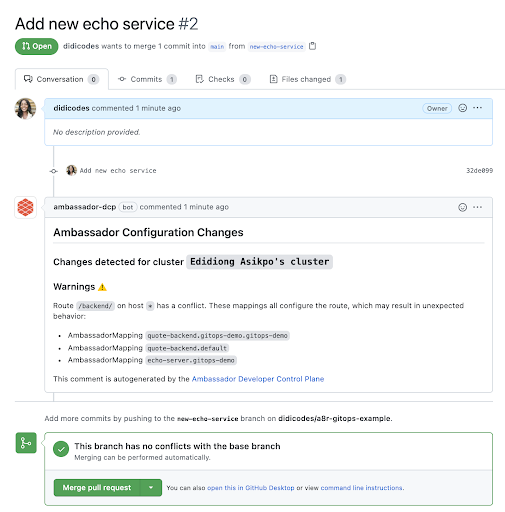At the Kubecon + CloudNativeCon North America conference, Ambassador Labs today announced it has added a cloud edition of its application development environment for Kubernetes that intends to make it simpler for developers to build cloud-native applications without the need for intervention from an IT operations team.
Richard Li, Ambassador Labs CEO, says provisioning Kubernetes and all the tooling required to build applications is still too complex for individual developers. The Ambassador Cloud Developer Edition provides developers with a Kubernetes control plane that spans the developer workflow across development, staging and production environments.
This latest offering is based on the existing Ambassador Developer Control Plane (DCP), a set of open source components that includes Envoy proxy software, the Argo continuous delivery platform, the emissary-ingress application programming interface (API) gateway and Telepresence traffic management software for microservices running on Linux and now Windows platforms. All four of the components are being advanced under the auspices of the Cloud Native Computing Foundation; Ambassador Labs contributed emissary-ingress and Telepresence.
Applications are developed on local machines as part of a GitOps workflow and the offering lets developers deploy canary releases with the push of a button without having to write YAML files and share updates via a URL. As an alternative, developers using the cloud edition of the platform can also use the GitLab continuous integration/continuous delivery (CI/CD) platform.
Ambassador Cloud also includes an Automated Configuration Analysis capability that inspects configuration changes that may impact production clusters before they are merged into a production environment. Services can be viewed via the Ambassador Cloud Dev Portal that captures data in real-time via the Kubernetes API, Swagger and OpenAPI and is then converted into human-readable metadata.
Li says one of the primary reasons more developers have not embraced Kubernetes to build applications is the complexity of the platform. Most application development platforms for Kubernetes require an IT operations team to deploy. Ambassador Labs is making a case for an approach that allows developers to use tools that they configure locally and are integrated with a preconfigured set of cloud services that enable them to manage the overall application development process.
Kubernetes is arguably the most powerful IT platform ever created. IT operations teams especially value the ability to orchestrate containers in a way that enables applications to more efficiently scale up and down. The challenge many developers face today is that building container applications remains a cumbersome challenge. There’s a critical need to streamline that process as part of an overall effort to make container platforms much more accessible.
Achieving that goal will require presenting developers with higher levels of abstraction that mask the underlying complexity of platforms such as Kubernetes. The good news is providers of container platforms are racing to provide those abstractions. Unfortunately, there’s still a lot more work to be done.




